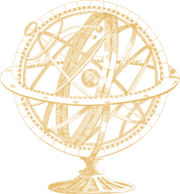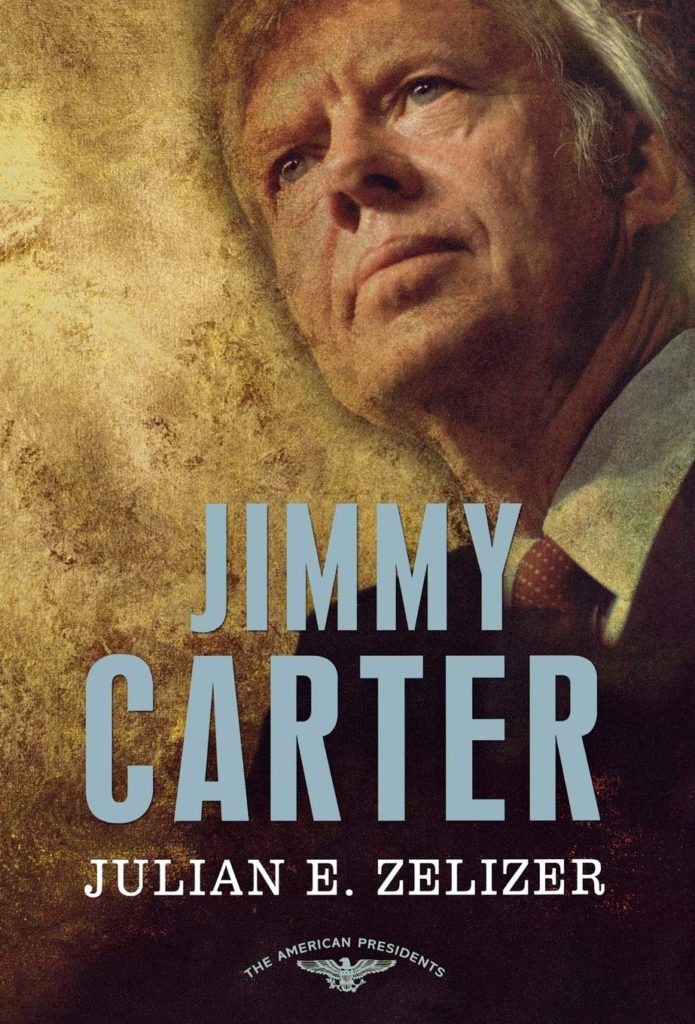Republicans are men of narrow vision, who are afraid of the future.
Jimmy Carter, the only Democrat elected president from 1968 to 1992
Jimmy Carter seems like a really great guy. One of four US Presidents to win the Nobel Peace Prize, Carter’s legacy after he left the White House is astounding. He founded the Carter Center in Atlanta, a citadel of international peace and diplomacy. He personally monitored elections in Nicaragua and Haiti to ensure fair, democratic processes. He traveled to North Korea to discuss disarmament. He guided the Camp David Accords to completion, achieving an historic peace treaty between Israelis and Arabs in the Middle East. But that facts point the other direction when looking at his four years as Commander-in-Chief. Jimmy Carter was a terrible president.
I had a hunch I would feel this way after reading a Carter biography. As such, I opted for the concise treatment by Julian E Zelizer in the American Presidents Series. It was informative, but as I look back over my notes I feel the same way I did when I finished the book: lacking substance. There are some good bits of trivia and nods to international affairs but, much like his years in office, many key events could have used a lot more attention.
It’s not that Carter was completely out of his league. JC was a legit politician. In 1962, he won a seat in the Georgia Senate after a contested election by fighting the primary results in court. His opponents were intimidating voters, stuffing ballots and paying for votes. Carter fought them head-on and came out the victor. In 1970, he became governor of Georgia. Three years later, Carter was named campaign chairman of Democratic National Convention. He was no slouch, but these things do not a great president make.
Jimmy Carter got elected by playing the “Washington outsider” card. With a reputation built on honesty and principles, Carter didn’t feel beholden to political machines, party bosses or special interests. However, never spending time in Washington meant he had no relationships there either. Despite his party holding both houses of the legislature at the onset of his presidency, Carter didn’t get along with Congress at all. His refusal to “play the game” meant most of his initiatives and goals were blocked. A long wish list of legislative actions stayed just that: a wish.
Added to these road blocks were crises at every turn. On the economic front, the sluggish recession that dogged the first half of his term was balanced by rampant inflation on the back half. In the energy field, fears of oil shortages and a call for conservation were so severe that Carter created the Department of Energy, adding the first new cabinet-level secretary in eleven years. He even wore sweaters in the White House with the thermostat down and added solar panels to the roof to try and set an example. He said the situation was the moral equivalent of war. In both cases, the economy and the energy crisis, Carter found precious few solutions and took most of the blame.
The biggest hits to Carter’s reputation seem to come from perceived weakness when dealing with other nations. Jimmy pardoned all the Vietnam draft dodgers. He gave the Panama Canal back to Panama. [Ed. note: That’s right, it didn’t belong to Panama since it was built. Yes, people really did get mad as hell about this and it only passed the Senate by one vote. And it only gave it back 20 years in the future, not immediately.] The Russians invaded Afghanistan, a Soviet show of strength that escalated the Cold War. He offered the pro-communist Sandinista leadership of Nicaragua millions in aid at the White House. Lastly, the Iran Hostage Crisis was a national embarrassment and the covert rescue mission that attempted to end it was an epic fail. Again, each of those topics deserve a deep dive of their own, but I’ll need to read some more books first.
It’s an oddity that Jimmy Carter got to be president at all. What if Nixon hadn’t gone down in Watergate flames and dragged the Republican Party with him? What if Reagan hadn’t put up such a primary fight against Gerald Ford leading up to the incumbent’s loss to Carter in 1976? What if the American primary system wasn’t so goddam convoluted that a friendly guy from Georgia winning a January election in Iowa with 28% of the vote and then leveraging that into a media-fueled underdog story catapulted him out of a crowded field and into the presidency ten months later? Questions for historians to debate over beers I suppose. His presidency may have been a lemon, but Jimmy Carter made some sweet lemonade out of his life.
Trivia
- Only president to graduate from the US Naval Academy
- Clarifying note for trivia pedants: several future presidents served in the Navy, but Carter was the only one to graduate the Academy at Annapolis
- Accepted into the Navy’s nuclear submarine program in 1952
- Lost his first bid for Georgia governor in 1966
- In one poll taken during the 1980 election, almost 40% of those asked said they were voting for Reagan simply because he was not Carter
- Israeli-Palestinian Relations – Took strong positions on Israel often being wrong and the aggressor in the two-state peace debate with Palestine
Follow-up Reading
- His Very Best: Jimmy Carter, A Life by Jonathan Alter
- President Carter: The White House Years by Stuart Eizenstat
- The Unfinished Presidency: Jimmy Carter’s Quest for Global Peace by Douglas Brinkley

